嘉宾介绍:
韩国国立昌原大学机械工程系教授Song Jung-il
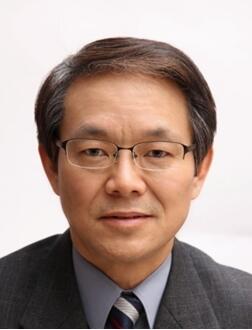
Jung-Il Songreceived his Ph.D. degree in Mechanical Engineering (Applied Mechanics) from POSTECH in 1996. His work experience includes Professor position in the Changwon National University(Dept. of Mechanical Engineering)from 1998 to present, Visiting Professor position in the Memphis University in 2003-2004, and Chief position in the Changwon National University(Dept. of Mechanical Engineering)in 2005-2007, and Head position in the 2nd Bain Korea 21 Corps of School of Mechatronics from 2006, and Dean position in School of Mechatronics from 2009. Starting from 2009, Dr. Song published more than 60 SCI research papers in international referred journals. His research fields include Manufacturing Process and Evaluation of Composites, Structural Analysis and Reliability Test of Structure and Biomedical and Rehabilitation Engineering。
韩国科学技术院教授、主任Soon Hyung Hong
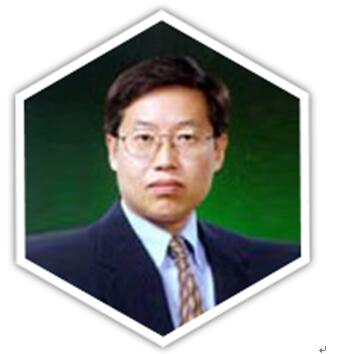
Prof. Hong completed his Ph.D. in Dept. of Materials Science and Engineering at Northwestern University in 1984. After R&D experience at Stanford University as a research associate, he joined Korea Advanced Institute of Science and Technology (KAIST)as a professor in 1986, where he is directing researchand education on nanomaterials and nanocomposites. Prof. Hong pioneered to develop frontier technologies for fabrication processes and applications of multi-functional nanocomposites,by a novelmolecular level mixing process, in 2005 and developed super-strong carbon nanotube fibers by applying a bio-inspired nanotechnology in 2011. Prof. Hong has published 205 international journal papers and registered 140 patents mainly in areas of nanomaterials and nanocomposites. Prof. Hong had served as a Managing Director of the Office of Strategic R&D Planning (OSP) in the Ministry of Knowledge Economy(MKE),Director for Basic Science and Engineering in National Research Foundation (NRF) of Korea, Presidents of the Korea Society for Composite Materials(KSCM)and the Korean Powder Metallurgy Institute(KPMI) and the Director of KAIST Institute for the NanoCentury (KINC). He currently is acting as the President of SAMPE Korea, and members of the Korea Academy of Science and Technology (KAST) and the National Academy of Engineering of Korea (NAEK). He had served as theeditor-in-chief of Nano Convergence, and is serving as editorial member of Composite Science and Technology.
韩国全南国立大学教授Kap SeungYang
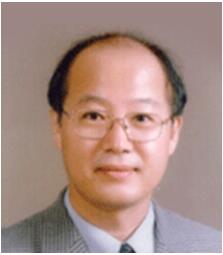
Prof. Yang started fiber related study from the university life in Department of Textile Engineering, Hanyang University, Korea (1971-1981). He moved to Textile School, North Carolina State University (NCSU) to study further in Fiber and Polymer Science Program (1982-1988). He researched mesophase behaviors of cellulose in a unique solvent, NH3/NH4SCN for his PhD. After he got a professor position at Chonnam National University, his interest has stayed on the fibers consisting of carbon atoms. The desires on the carbon fiber were developed through research visit of Department of Applied Science for Electronics and Materials, Kyushu University, Japan (1995). The research background gave him a chance to do researches on electrospinning and resulted the success of the process developing mass production of organic polymer,100kg/day with collaborations of NanoTechnics Co. (CEO, Yong Min Kim) and the technology were transferred to DuPont, U.S.A.(2002). The commercialization of the electrospinning opened to him another chance to study the electrospinning based carbon nanofibers. From the researches, he published over 100 papers on the electrospinning, carbon nanofibers, and their applications. He is still looking for the process of electrospun carbon fibers with strong mechanical properties. He published 70 papers and 24 patents in recent 5years from the related studies. He became achair professorat Chonnam National University in Feb 2017 after his retirement from the same university.
韩国全北国立大学教授Lee, Joong Hee
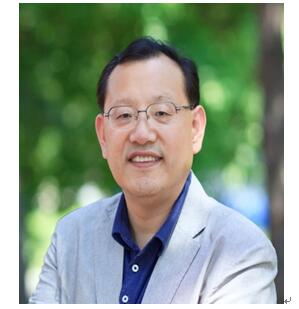
Prof. Song's main research interests include the Graphene Synthesis and Application, Polymeric Nanocomposites, Processing Technology of Nanocomposites, Composite Processing Technology, Functional Composites (Magnetic, Electrical Materials), Hydrogen and Fuel Cell and Bio-Nano Materials. Prof. Song received his Ph.D. degree in Mechanical Engineering from University of Minnesota in 1995. He currently works in the Dept. of Polymer Nano Science and Technology of Chonbuk National University. Also he is the head of Advanced Materials Research Institute for BIN Fusion. He published 252 SCI papers (185 papers in Top 10% Journal) and more than 400 Conference papers and key note speakers presented.
西安科技大学教授周安宁
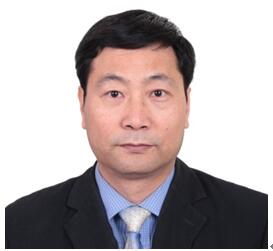
Zhou Anning (周安宁), Professor of College of Chemistry and Chemical Engineering at Xi’an University of Science and Technology since 1999. His work is mainly focused on the technologies for coal, biomass and CO2polygenernation conversion and coal-based materials via photochemistry, thermochemistry and biochemistry methods. Dr. Zhou earned his Bachelor Degree of Science in Chemistry at Shaanxi Normal University in 1983, Master Degree of Science in Organic Chemistry from the Institute of Coal Chemistry, Chinese Academy of Sciences in 1989, and Ph.D. degree in Organic Chemistry Engineering at Dalian University of Technology in 1996
yl34511线路中心教授韩晓刚
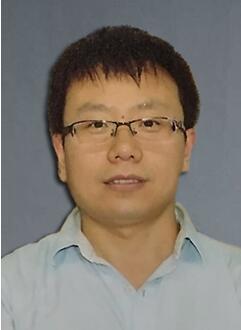
Dr. Xiaogang Han is a professor in Xi’an Jiaotong University (XJTU) in China. He graduated from Shanxi University with a bachelor degree in material chemistry in 2000, and later on pursued his doctoral studies with Prof. Zhaoxiang Deng at the University of Science and Technology of China. After obtaining his Ph.D. degree in 2009, he continued to work on inorganic nanomaterial synthesis and application in the next two years as a postdoc with Prof. Yadong Yin at the University of California, Riverside. Then, Dr. Han joined in Prof. Liangbing Hu’ research group at University of Maryland at College Park where he started his researches on electrochemical energy storage including solid-state lithium batteries, lithium-sulfur batteries, sodium ion batteries, graphene supercapacitor, etc. In 2015, he became an Assistant Research Scientist at the University of Maryland. In 2016, he started to work at XJTU with a Young Talent Plan, mainly focusing on the studies of solid-state lithium batteries, lithium metal protection, and holey graphene applications. He so far has published about 50 research papers on scientific journals including Nat. Mater, J. Am. Chem. Soc., Adv. Mater., Nano Lett., and ACS Nano. From 2016, he has been an executive director for Xi’an nanotechnology and nanoscience society, and also associate editor for Frontier-Energy Research。


